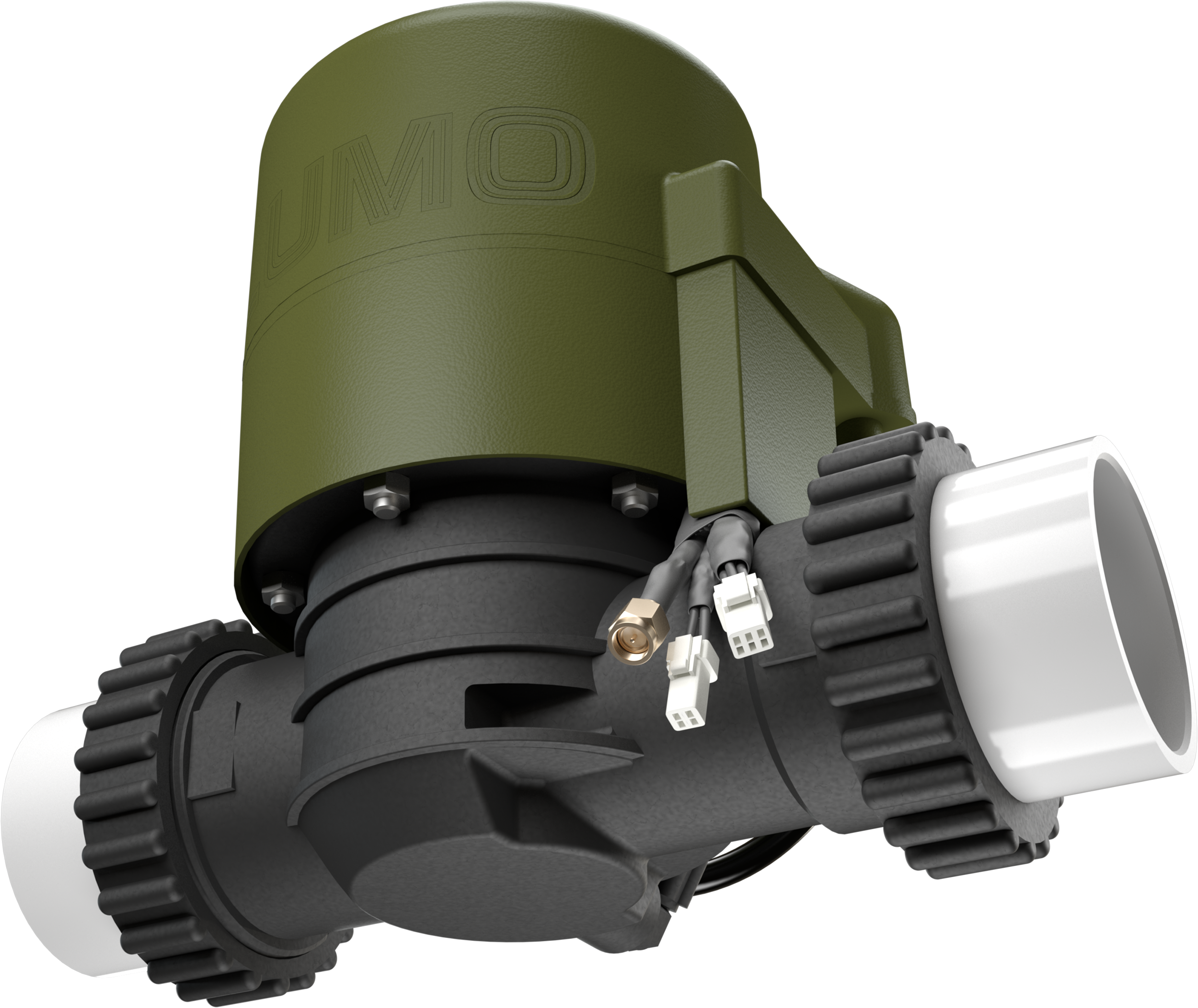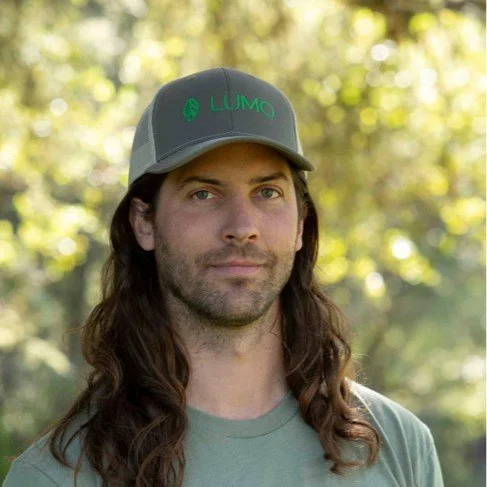MSIV Invests in Santa Rosa’s Lumo
Q&A with Co-Founder & CEO Devon Wright
Monday, October 27, 2025 from Santa Rosa, CA
In 2021, Marin Sonoma Impact Ventures launched the North Bay’s first regional venture capital fund and began deploying capital into Marin + Sonoma’s most promising startup companies.
Today, we are excited to share details around our investment in Lumo, a Santa Rosa based startup building a precision irrigation system for specialty crop growers.
Lumo’s smart valves have built-in flow meters and provide automation, control, and advanced reporting that closes the loop between planned and actual water delivery. Lumo is cloud-managed, so it can be controlled and monitored from anywhere. This reduces the number of required site visits and time spent on-site, helping rein in labor costs while giving growers block-level visibility into water usage for the very first time.
Why We Invested
Despite advances in modern technology, specialty crop growers still don’t have an accurate read on exactly how much water made its way onto their crops. In a world where farm labor and water are getting scarcer by the day, Lumo was founded to help growers irrigate more efficiently and precisely, saving water, improving crop quality, and reducing costs.
Lumo was purposefully founded in Sonoma county in 2022, with the product tested, iterated on, and perfected in the North Bay’s famed vineyards, counting some of the most well-known grape growers as early adopters.
At the peak of irrigation season, Lumo now delivers 50+ million gallons of water with block-level precision each week, and its devices have been installed at over 150 ranches totaling thousands of acres. They’ve recently expanded their reach to apple orchards in Washington and ultimately plan to own precision irrigation for all specialty crops.
Lumo Co-Founder & CEO Devon Wright is originally from the Toronto area and previously worked in tech. He built WiFi marketing startup Turnstyle Solutions, which he sold to Yelp in 2017. He relocated to the Bay Area to work at Yelp and subsequently moved to west Sonoma county, where his property relied on groundwater and he gained a first-hand passion for building solutions that address our water crisis.
Devon partnered with Henry Halimi, a lifetime innovator in the water space who previously built Flo Technologies, which sold to Moen and has become a leading smart water valve for residential homes. Devon and Henry are reimagining the innovation built for homes to change the way commercial agriculture waters specialty crops.
The North Bay is primed to be a hotbed of AgTech innovation, and we are pleased for the team at Lumo to help kickstart a flurry of local activity in this space in the years to come.
MSIV Founder & Managing Partner Zachary Kushel sat down with Lumo Co-Founder & CEO Devon Wright to discuss the future of specialty crop irrigation and Lumo’s work to bring precision watering to agriculture.
Lumo CEO Devon Wright
ZK: Devon, where did the inspiration come from for you to launch Lumo?
DW: I moved to Occidental near the end of the last decade when our region was slowly coming out of the worst drought in modern California history. It’s a rural town, and we rely on groundwater. I had started a little orchard on my property, and I ran my own well dry by accidentally overirrigating – luckily, I only had a quarter of an acre, but I began thinking about the disaster this could have been if I was one of our region’s large grape growers irrigating thousands of acres.
My first instinct was that large growers must already have valves that alert them when a massive leak was occurring and that perhaps I could borrow that solution for my orchard. What I discovered is that the opposite was true – irrigation was mainly conducted by driving around properties on ATVs and manually opening and closing valves, and that when large leaks occurred it hurt crops, hurt businesses, and wasted our precious water resources.
I thought there might be a business opportunity here, so I spent a few months tagging along with our region’s top grape growers and irrigators to learn about their operations. I became convinced there was an unmet need, and I was blown away by the generosity of the farmers and how open they were to partner with a newcomer like me. I became determined to build a product that served these hardworking growers and tackled this challenging physical problem and so Lumo was born.
ZK: Can you share more about the product vision for Lumo – what are you unlocking for the future of irrigation that did not exist in a pre-Lumo world?
DW: The farmers I shadowed were clear that existing irrigation technology misunderstood the job of the irrigator. It’s much more involved than the opening and closing of valves. At its core irrigation is a complex data and measurement problem – growers conclude they need a specific amount of water on a specific block and then expect their irrigation system to make that happen. Yet those systems always have constraints – perhaps the pump only has so much water it can push out, or the tank is running low, or they have broken lines, or low pressure issues, or clogged filters. There’s a long list of things that make it difficult to match water intended to water delivered.
The best irrigators are immensely skilled and know the nuances of their systems and the ways watering can go wrong. So we set out to build a smart valve that is also a measurement tool and does the things that great irrigators do. We did not want to bring to market another controller that simply opens and closes valves – these growers have been sold those products over and over, and they’re not equipped to do the job they need. Instead, the Lumo valve has built in sensors and a brain that supports farmers operating at scale, and it provides the measurement and feedback necessary so growers can isolate and fix issues that inevitably occur in the delivery cycle.
ZK: Your co-founder Henry is a longtime innovator in the water space and most recently developed the Flo product that has become ubiquitous in homes. How has his experience building a product for residential translated to agriculture?
DW: Without Henry’s leadership and guidance we might have built another controller and already been out of business! His lifetime of experience in plumbing technology has given us significant advantages in building up our supply chain capacity and manufacturing capability that gave us the courage to push forward in building our smart valve. His reputation and background was essential in giving our earliest adopters the courage to buy our product, well before we were live on 150+ ranches. We have a great relationship and it’s been a privilege to build Lumo in partnership with him.
ZK: Can you introduce yourself to the community as their North Bay neighbor? Where can we find you when you’re not leading Lumo?
DW: My wife Molly and I have three little girls – almost 5, almost 3, and almost 1 – and we live on a 7-acre piece of land in Occidental. We have all sorts of animals and plants, with ducks, goats, a dog, a cat, too many ponies, and I don’t even know how many chickens. Our family, our little farm, and our orchard keep us busy on the land, and we have a great church community in Sebastopol that we love spending time with.
We moved here because this is such a beautiful place, and the people are amazing. We love Sonoma’s towns – Petaluma has a ton of young energy, we have world-class wine, ag, and cattle communities all throughout, and you have cities like Santa Rosa with real industry and Healdsburg with its hospitality and arts vibe. It’s all in one place, and everything can be touched within a one-hour drive. There’s no place we’d rather be.
Lumo team members at the recent annual Worth of Water event
ZK: What excites you about the potential of the growing Marin + Sonoma startup community and collaborating with MSIV?
DW: In meeting you, it became clear that you see the potential for Sonoma + Marin’s economic future to be much more robust than the present, and for so many reasons I see it the same way. We’re driving distance from the best tech community in the world and to the biggest farms in the country. I was inspired to hear your vision for what this place could be. With all we have going for us, why wouldn’t I be able to build something of significance right here in Sonoma?
I also think it’s necessary to bring more venture capital to the community. Yes, there are lots of ways to launch and fund businesses, but venture can unlock big things that are risky and could fail but have the potential to shape the future. So many smart young people are attracted to working in companies doing big things, and we’ve struggled to attract enough young people to the North Bay. I’m hopeful Lumo will be a prime example and prove to everyone that you can build a globally impactful company from Sonoma county.






